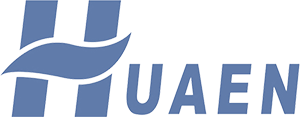Key Factors to Consider When Buying a Money Counter
There are a number of key factors to consider when buying a money counter, each of which can have a significant impact on the effectiveness and efficiency of your cash handling processes. With the right money counter, you can streamline your operations and minimize the risk of human error. However, with so many different options available on the market, it can be challenging to determine which money counter is the best fit for your specific needs. In this article, we will explore some of the most important factors to consider before making a purchase, to help you make an informed decision.
Accuracy and counterfeit detection
When it comes to purchasing a money counter, accuracy and counterfeit detection are two of the most crucial factors to consider. A money counter that provides accurate counts and reliable counterfeit detection can help protect your business from losses due to human error or counterfeit currency. Look for a machine that uses advanced technology to ensure precise counting and offers sophisticated counterfeit detection features. Some models use ultraviolet and magnetic sensors to verify the authenticity of bills, while others may include infrared and multispectral imaging for even greater accuracy. It is essential to choose a money counter that can detect a wide range of counterfeit bill types and accurately count large volumes of cash.
Speed and capacity
The speed and capacity of a money counter are also important considerations, especially for businesses that handle large volumes of cash on a daily basis. High-speed money counters can significantly improve productivity and efficiency, allowing you to process cash transactions more quickly. Additionally, a machine with a large hopper and stacker capacity can help minimize the need for frequent interruptions to reload bills, which is particularly beneficial during peak business hours. Before making a purchase, consider the average number of bills you need to count in a typical day and choose a machine that can handle your specific volume requirements without sacrificing accuracy or reliability.
Ease of use and maintenance
Another key factor to consider when buying a money counter is the ease of use and maintenance. Look for a machine that is intuitive and user-friendly, with a clear and easy-to-read display and straightforward controls. Additionally, consider the maintenance requirements of the money counter, including the ease of cleaning and servicing. Some models may require regular maintenance to ensure optimal performance, while others may offer self-diagnostic features to help identify and resolve potential issues. Choosing a machine that is easy to use and maintain can help minimize downtime and ensure that your cash handling processes run smoothly.
Size and portability
The size and portability of a money counter can also be important factors to consider, particularly for businesses with limited space or those that require the flexibility to use the machine in different locations. Some money counters are compact and lightweight, making them easy to transport and suitable for use in a variety of settings. Others may be larger and more stationary, offering higher capacity and additional features. Consider your specific space and mobility requirements when choosing a money counter, and select a model that aligns with your business needs.
Additional features and functionality
In addition to the essential factors mentioned above, there are several additional features and functionalities to consider when purchasing a money counter. Some models offer customizable counting options, allowing you to program the machine to count specific batches or denominations of bills. Others may include advanced reporting capabilities, such as the ability to track and export counting data for record-keeping and analysis. Consider the specific features that would be most beneficial for your business and look for a money counter that offers the functionality you need to optimize your cash handling processes.
In summary, when buying a money counter, it is essential to consider factors such as accuracy and counterfeit detection, speed and capacity, ease of use and maintenance, size and portability, and additional features and functionality. By carefully evaluating these key factors and selecting a money counter that aligns with your business requirements, you can improve the efficiency and accuracy of your cash handling operations. With the right money counter, you can minimize the risk of human error, streamline your processes, and protect your business from losses due to counterfeit currency.
.Huaen PRODUCTS





